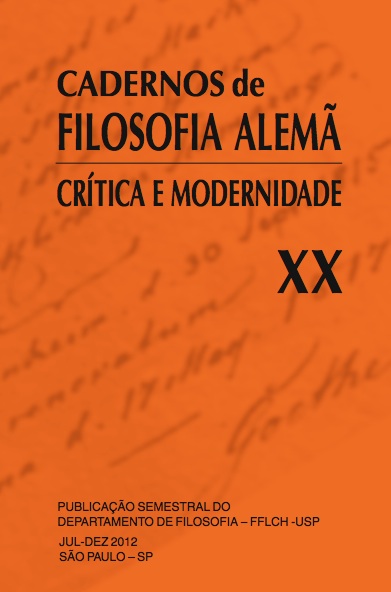Morality in the world: the highest good and Kant’s philosophy of history
DOI:
https://doi.org/10.11606/issn.2318-9800.v0i20p55-80Keywords:
Kant, Highest good, History, Morality, WorldAbstract
This paper has two sections. At first, I present an approach to Kant’s concept of the highest good that tries to show its systematic place within Kant’s practical system. Against established interpretations, I sustain that the highest good does not hinder autonomy; instead, it allows Kant to deal with problems that were left aside when he was elaborating the grounding of morality. Then, I compare the concept of the highest good with the idea of moral progress in Kant’s philosophy of history. In the light of this comparison, I discuss the thesis according to which this progress can be interpreted as an alternative to the postulate of soul immortality and the interpretation according to which moral historical progress allows a possible and more concrete representation of how the sensible world can come closer to the idea of a moral world.Downloads
Downloads
Published
Issue
Section
License
Information and conceptions on the texts are complete responsibility of the authors.
All the articles submitted before July 5th 2018 and those published after July 2021 are licensed under a CC BY-NC-ND license – except those published between the aforementioned dates, which are under the CC BY-NC-SA license. The permission for the translation of the material published under the license CC BY-NC-ND by third parts can be obtained with the consent of the author.
Open access policies - Diadorim
Rules applied before July 5th 2018:
Presenting a submission to our Editorial Board implies granting priority of publication for “Cadernos de filosofia alemã”, as well as transferring the copyright of texts (once published), which will be reproduced only with the manifest authorization of the editors. Authors keep the right to reuse the texts published in future editions of their work, without paying any fees to "Cadernos”. We will not grant the permission to re-edit or translate the texts for third parts without agreement of the author.


